With the spirit of Shishukan in mind, aim to become an international and interdisciplinary person (a global leader in the fusion of humanities and sciences) who creates value that only you can create.
A doctoral student who is regarded as a leading force in innovation in Japan.However, the number has been sluggish compared to the increase in the number of undergraduate students. In response to the opinion from the university side that ``there is a problem with companies that do not employ doctoral course graduates,'' some companies say that ``it is difficult to use doctoral course graduates.''To address the problem of higher tuition fees compared to the United States, a new policy was recently launched.
On the other hand, there are also strong opinions that the state of graduate schools and graduate school education itself is a problem.The most recent graduate school reform is the Leading Graduate School Initiative, which began in 2011. In the series of graduate school reforms that began in the 1990s, it was launched with the aim of making up for the lack of graduate school education up to that point and cultivating the next generation of leaders.
In 2011, the Institute for Integrated Survival Studies (commonly known as Shishukan) was established in XNUMX with the aim of establishing an independent graduate school.We will introduce how the graduates are active in society.
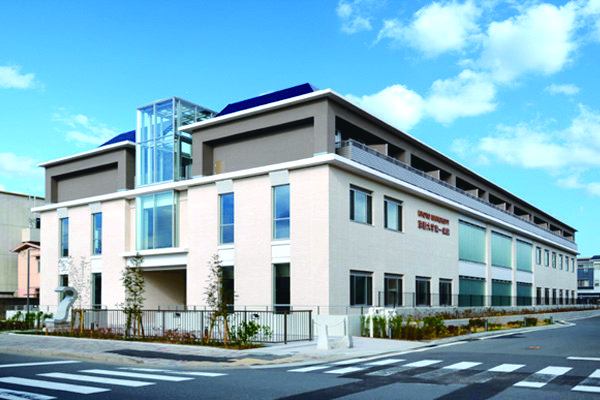
What is your current work and research? ━ “Shishukan graduates” who continue to run at the forefront of each industry
Sogo Gakusei Gakkan (commonly known as Shishukan) has so far produced 29 “general academic” doctorates, who are active in various places such as international organizations, government agencies, research institutes, and private companies.Aiming to solve social issues with an approach that integrates the humanities and sciences based on the survival of humankind and the global community!With that in mind, we asked five alumni who are making use of the Comprehensive Survival Studies they learned in graduate school to talk about their studies at graduate school, their career paths, and their future prospects.I also received a message for high school students and college students.The chairman of the discussion was Kojo Shiraishi, a graduate of the Shishukan program.
Shiraishi:Hirano-san and Yokoyama-san graduated in 2018, Boliko-san and Nomura-san graduated in 2020, and Nakamoto-san graduated in 2021.Where and what kind of work are you doing now?
Boliko:Yachiyo Engineering Co., Ltd.'s Overseas Business Department/Energy Division conducts socio-economic analysis.My main job is to conduct preparatory surveys at the request of the Japan International Cooperation Agency (JICA), and so far I have visited the Republic of Malawi and the Democratic Republic of the Congo in Africa.We visit the site about five times a year, meet with the Ministry of Energy and related companies regarding renewable energy such as small hydroelectric power generation, check the local situation and collect information.The Democratic Republic of the Congo is my home country, and I find it very rewarding and joyful to be able to support the development of developing countries.
Nakamoto:After graduating from graduate school, I entered the civil service. There is a movement to review the international tax rules established in the 1920s for the first time in 100 years, and I am involved in a project involving about 140 countries and regions as a member of the Japanese team. The emergence of businesses that do not buy and sell "things", such as Google and Apple, has changed the business model so far.Under such circumstances, we are working together as a team to create a system that distributes taxes fairly.
Nomura:I belong to the Sustainability Promotion Department of Seven & i Holdings. She has been involved in various jobs centered on food, but currently she is mainly in charge of sustainable procurement, participating in conferences to decide international rules, and improving corporate value related to ESG investment.She has also worked extensively with international organizations, most recently working with the United Nations Children's Fund (UNICEF) and the Norwegian Central Bank Investment Management Department on the theme of "Children's Health and Nutrition".
Plains:I am a faculty member at the College of Asia Pacific Studies, Ritsumeikan Asia Pacific University.He specializes in international law, and is currently researching rules and systems related to water.I am researching how international law can be used to prevent conflicts that may be caused by water and to resolve conflicts that have arisen.In recent years, the idea that water is a human right has spread, and countries have been recognized as having an obligation under international law to ensure that individuals have access to safe drinking water.In addition, there are various international laws such as treaties regulating the use of international rivers, environmental treaties aimed at protecting wetlands, and international economic laws related to water business.
Yokoyama:We are researching and developing unique interactive education necessary for human resource development in the IT field.After graduating from graduate school, I pursued my specialty by combining welfare education, philosophy education, and IT.I have clients in various countries, so I run my own company.
Shiraishi:Everyone is working full time in various industries.Mr. Yokoyama, please tell us more about your activities that integrate research and practice.
Yokoyama:The interactive education I am developing is similar to what is called active learning in pedagogy, but it is characterized by the fact that it incorporates the philosophical keyword of self-awareness through verbalization. .Since it brings about self-transformation, it has produced results that improve teamwork and problem-solving ability in practice.For example, human resources from Southeast Asia, which are attracting attention both at home and abroad.We have ethnically diverse backgrounds, so if each of us can be proud of our own culture, values, and language, it will have a positive impact on all aspects of life, work, and welfare.Until now, these three have been considered separately, but I have come to understand that it is necessary to grasp them comprehensively.In offshore development of systems, apps, and web in Laos, we solicited investment from the IT industry, which has a shortage of domestic human resources, and established a research institute to study the culture of the Lao ethnic minority. It has produced results, such as being promoted to a public interest research institute within the administration of Luang Prabang in just one year.
Graduate school studies and career development
Shiraishi:In addition to promoting research in a variety of specialized fields, the Institute for Integrated Survival is characterized by an educational program that enables students to acquire a comprehensive perspective across fields.Reflect on the programs and activities that have helped shape your career so far and your current job.
Boliko, Nakamoto, Nomura and Yokoyama (together):This is the 4th year "Overseas Musha Shugyo".
Shiraishi:I see, where did everyone go?
Boliko:I am the representative office of the United Nations Development Program (UNDP) in Tokyo, Japan.
Nakamoto:Organization for Economic Co-operation and Development (OECD) headquarters in Paris, France.
Nomura:United Nations Food and Agriculture Organization (FAO) headquarters in Rome, Italy.
Plains:I am from the International Water Association (IWA) headquarters in The Hague, Netherlands.
Yokoyama:UNDP Cambodia office in Phnom Penh, Cambodia.
Shiraishi:that's right.How has your experience there helped you now?
Nomura:I currently have the opportunity to work with an international organization, and since I was able to experience how to proceed with work and the sense of speed, I am able to anticipate the movements of each organization and proceed smoothly.
Yokoyama:I think this is one of the most distinctive features of the graduate school, as there is no other graduate school that requires work in an international environment, including that of a United Nations agency.
Boliko and Nakamoto:I agree with Mr. Nomura and Mr. Yokoyama.
Plains:As an opportunity to face the realities of society, I think that "deliberation" was also very effective.It was stimulating to exchange opinions with top runners in each industry, including top executives of private companies who frequently appear in the media.
Boliko:Being immersed in research every day has greatly contributed to improving the ability to perform practical tasks.In graduate school, I conducted a socio-economic analysis on renewable energy, and the analysis method is currently being applied to the preliminary survey I am conducting at Yachiyo Engineering Co., Ltd.
Nakamoto:I studied international taxation, so my current work is an extension of that.
Yokoyama:The knowledge and experience related to international development, and the ability to build a human network with international organizations and the experts who work there, are very useful.I was blessed with experienced instructors in different fields and different industries, so I was able to constantly acquire new perspectives.I think that this is still useful in working with people of various nationalities and fields of expertise.
Nomura:I agree with Mr. Yokoyama's opinion.I am currently participating in an international conference on the establishment of ISO (International Organization for Standardization) standards as one of the experts on the Japan team in order to determine international rules for food loss reduction. I feel that this is the result of networks and research.
Plains:It was also good to live in a dormitory with friends who share the same aspirations.When consulting with students on their future career paths, we can imagine their peers who were active in various industries at the time and advise them on their career paths.The participants this time are also active in such a variety of places!
dream again for the future
Shiraishi:I think I could spend a whole day talking about graduate school and career development alone (laughs).It's been a few years since you graduated from graduate school, and I think your work is getting back on track.I would like to ask you again about your future prospects.
Boliko:The major premise of my work is that I want to continue doing work that helps people.As a new challenge, I would like to start my own company based on the economics and marketing knowledge I learned at university in Boston, USA.
Nakamoto:I always want to be conscious of helping people.I am currently working as a civil servant, but over the past five years, I feel that my desire to help people and help those in need has grown stronger and stronger.Of course, I also want to do work that makes me happy.
Nomura:Work what you love!That's important.For me, it's "food".I am working hard every day to ensure that my favorite foods will not run out 100 or 200 years from now.As for the future, I am thinking about the possibilities of various career paths, including working overseas within the company and changing jobs.I would like to use my doctorate as a weapon to take on the next step.
Yokoyama:It may be similar to what Mr. Nakamoto and Mr. Nomura think, but I want to decide my own path.When I was in college, I decided to become a manager.Currently, the educational program we have developed is becoming successful in South Korea, so we would like to expand it to China in the next five years.
Plains:Water-wise, I would like to create a society that is "wise from water".International laws related to water have been developed and developed in various regions and fields.However, when looking at the big picture from the perspective of water, there are some overlaps and gaps that do not seem to be effective in solving global challenges.I believe that this awareness of issues will provide us with suggestions when reviewing the governance of the international community.We will reconsider international issues from the perspective of water, which is different from our human perspective, and reflect this in our research.
Message to high school and college students
Shiraishi:We spoke with five people from different fields of expertise and completely different jobs and industries.
In particular,
(XNUMX) Create value in society that only you can create.Each individual is thinking about growing themselves and creating their own value in society through their own talents, abilities, ideas, or from a unique perspective.To that end, the first important thing is to think thoroughly about what you like, what you are good at, and what you can continue to be passionate about.It can be something or an activity that people don't pay much attention to.What you find, go through, go through, go through, and even if you hit a wall, go through it again.And overcome the wall with new ideas acquired in the process.This process is absolutely essential to becoming world-class.For that reason, it is important to do what you like and what you believe in, rather than looking at others.
(XNUMX) Acquire an international character that is unique to you.Learn, work, and live abroad, put yourself in an environment with different languages, cultures, and religions, and acquire an international perspective.If you add your own unique way of thinking to that, you will acquire an internationality that is unique to you.It is important to act based on past habits and known information, but today it is just as important to explore new possibilities and create innovation.I think internationality is one of the important qualities for that.
Boliko:If you have never set foot on the African continent, please do so!
(1) Become a leader in interdisciplinary approach.Complex social issues cannot be resolved by a single specialized field.What is needed now is the ability to communicate across different academic and specialized fields with diverse knowledge and perspectives, and the ability to cooperate with others to solve problems.I would like to call a person who has acquired this knowledge a leader who wears an interdisciplinary approach.Such human resources 2) have extensive knowledge in multiple academic fields and specialized areas, so they can deepen their understanding of the other person's specialized field. 3) Have the ability to communicate smoothly with people with different backgrounds and knowledge, explain technical terms and concepts in an easy-to-understand manner, and exchange opinions with different experts and stakeholders. XNUMX) And by combining knowledge and perspectives from different fields, you can solve problems more comprehensively and creatively.
We aim to be such a leader, and we would like to continue to improve ourselves every day.

Assistant Professor, Graduate School of Agriculture, Kyoto University
Akira Shiraishi
Graduated from Faculty of Agriculture, Kyoto University in 2012.After working as an intern at the Food and Agriculture Organization of the United Nations (FAO) and a postdoctoral fellow at the Japan Society for the Promotion of Science, she received her doctorate in agriculture from Kyoto University in 2017.After completing the doctoral course at the same graduate school, he served as Foreign Affairs Officer of the Ministry of Foreign Affairs in 2017, FAO Junior Specialist in 2018, and FAO Food Safety Specialist in 2020. Since January 2021, he has been an assistant professor at the Graduate School of Agriculture, Kyoto University, where he is today.In addition to his research, he is involved in science policy planning as an expert in the Ministry of Economy, Trade and Industry's Young Expert Committee for Carbon Neutrality in 1 and the Global Bioeconomy International Advisory Committee.He graduated from Gifu Prefectural Tajimi Kita High School.
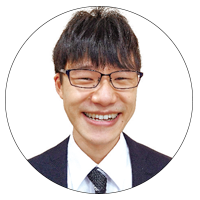
Civil servant
Mr. Tenzo Nakamoto
Graduated from the Faculty of Law, Kyoto University.After working as an intern at the Organization for Economic Co-operation and Development (OECD), he obtained a Ph.D.After graduating from the Graduate School of Integrated Survival Studies, he joined the National Tax Agency.He is from Meisei High School.
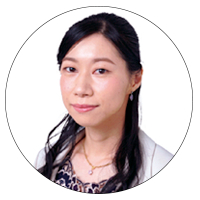
Seven & i Holdings Co., Ltd.
Ayaka Nomura
After working as an intern at the Food and Agriculture Organization (FAO) of the United Nations in 2018-19, he received a doctorate (general academic) from Kyoto University in 2020.In the same year, she joined Seven & i Holdings Co., Ltd. and joined the Sustainability Promotion Department of the ESG Promotion Headquarters.Currently, he is in charge of promoting the environmental declaration "GREENCHALLENGE 2050" together with group companies, especially the sustainable procurement team. He also works on improving the corporate value of ESG investment and overseas collaboration with international organizations.At the same time, he is involved in the formulation of management standards for food loss reduction as a Japanese expert in the ISO international committee.He graduated from Hamamatsu Konan High School.
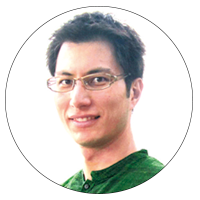
Ritsumeikan Asia Pacific University College of Asia Pacific Studies Assistant Professor
Miharu Hirano
Graduated from the Faculty of Law, Kyoto University in 2013.After working as a Research Fellow of the Japan Society for the Promotion of Science and a Research Fellow of the International Water Association (IWA), in 2018 she received her Ph.D.After working as a postdoctoral fellow of the Japan Society for the Promotion of Science (accepted at the Graduate School of Law, Kobe University), she has been in her current position since October 2019.Graduated from Aichi Prefectural Chikusa High School (International Liberal Arts Department).
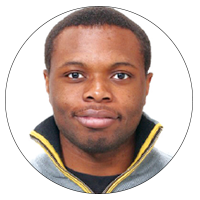
Yachiyo Engineering Co., Ltd. Senior Associate
Charles Boliko
Graduated from Northeastern University in 2014 with a major in finance and marketing.While in school, he interned at MassGeneral-Brigham and JohnHancock. In 2014-15, after working as a research student at the Faculty of Economics, Wakayama University, and as an intern at the United Nations Development Program (UNDP), obtained a Ph.D.After completing her studies, she will be involved in energy development project support as a senior associate at Yachiyo Engineering Co., Ltd. from June 2021.She graduated from Rome Marymount International School.
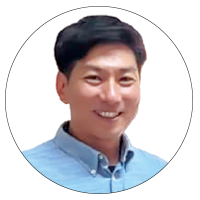
Outside Director of Dot Consulting Co., Ltd.
Wisa/NPO Wakamono International Support Association
Senior Director National University of Laos LJI Senior Researcher and Lecturer
international organization consultant
Mr. Taizo Yokoyama
After graduating from Hiroshima University in 2007, he got a job at a private company. In 2009, he established an NPO that supports IT companies and young people who have difficulty participating in society. In 2018, he received a Ph.D. (general studies) from the Kyoto University Institute for Integrated Survival (Shishukan).Graduated from Osaka Prefectural Tsurumi Commercial High School.
